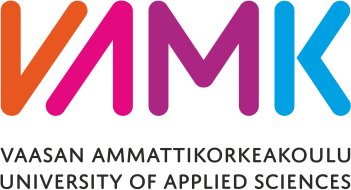Project information:
Official name of the project: Developing Battery 2nd-life Business in Ostrobothnia
Duration of the project: 1.1.2023 - 30.6.2023
Project coordinator: VAMK
Project partners: Novia, University of Vaasa, Åbo Akademi
Funding: ERDF
Budget: 54 250 €
Project description
As traffic becomes electrified (hybrid and fully electric vehicles), the number of lithium ion batteries increases significantly. Permanently installed smaller electricity storages can be at the point of consumption and larger electricity storages connected to the regional or distribution network. As renewable energy sources become more common, the need for permanently installed battery storage will increase significantly; small battery storages, for example, in connection with solar power solutions for private houses, and large battery storages in connection with wind farms, as well as large ship batteries. The common thing for electric vehicles and electric storage is the utilization of Lithium ion battery technology. Used lithium-ion batteries are often seen as particularly problematic from an environmental point of view, but their reuse can offer significant business potential in the province of Ostrobothnia.
Goals
The goal of the project is to promote the reuse of lithium-ion batteries in the province and to acquire related know-how for local universities, which in turn supports the GigaVaasa project. The project increases awareness, increases the know-how of battery reuse and supports sustainable development, and thus the project supports the GigaVaasa project. The GigaVaasa project has created a world-class operating environment for energy technology companies. The GigaVaasa factory area is the only one of its kind in the Nordic countries and the whole of Europe. The project aims to support and activate local companies in the circular economy and reuse of batteries. The project initially maps the current situation of battery reuse and recycling in the province and creates an estimate of the related future business potential. The nature of the project is Technical Economics and the goal of the project is also to look at the testing and reuse of batteries from a technical point of view. The goal of the business part of the project is to support development so that local companies get the greatest possible benefit from the business potential of batteries for means of transportation and electric storage. Without local operators, the business potential of reusing lithium-ion batteries will drain away from the province. The long-term goal of the project is also to support the export possibilities of technology and operating models related to the reuse of batteries.
Results
At the end of the project, the current status and future potential of battery reuse in the province have been mapped and developed. Potential commercial and technology-related actors have also been mapped. Cost analyzes and profitability calculations have been made for the reuse of batteries, based on which a business model proposal has been created. In the project, a preliminary road map for the business of used batteries in the province is prepared. A business cooperation network has been formed in the province. Work instructions have been drawn up for the safe handling and conversion of reusable batteries to a new use, which can be used by, for example, local companies. The information and know-how collected in the project have been distributed, e.g. in reports and seminars. Local companies and universities will use the results of the project after the end of the project.

